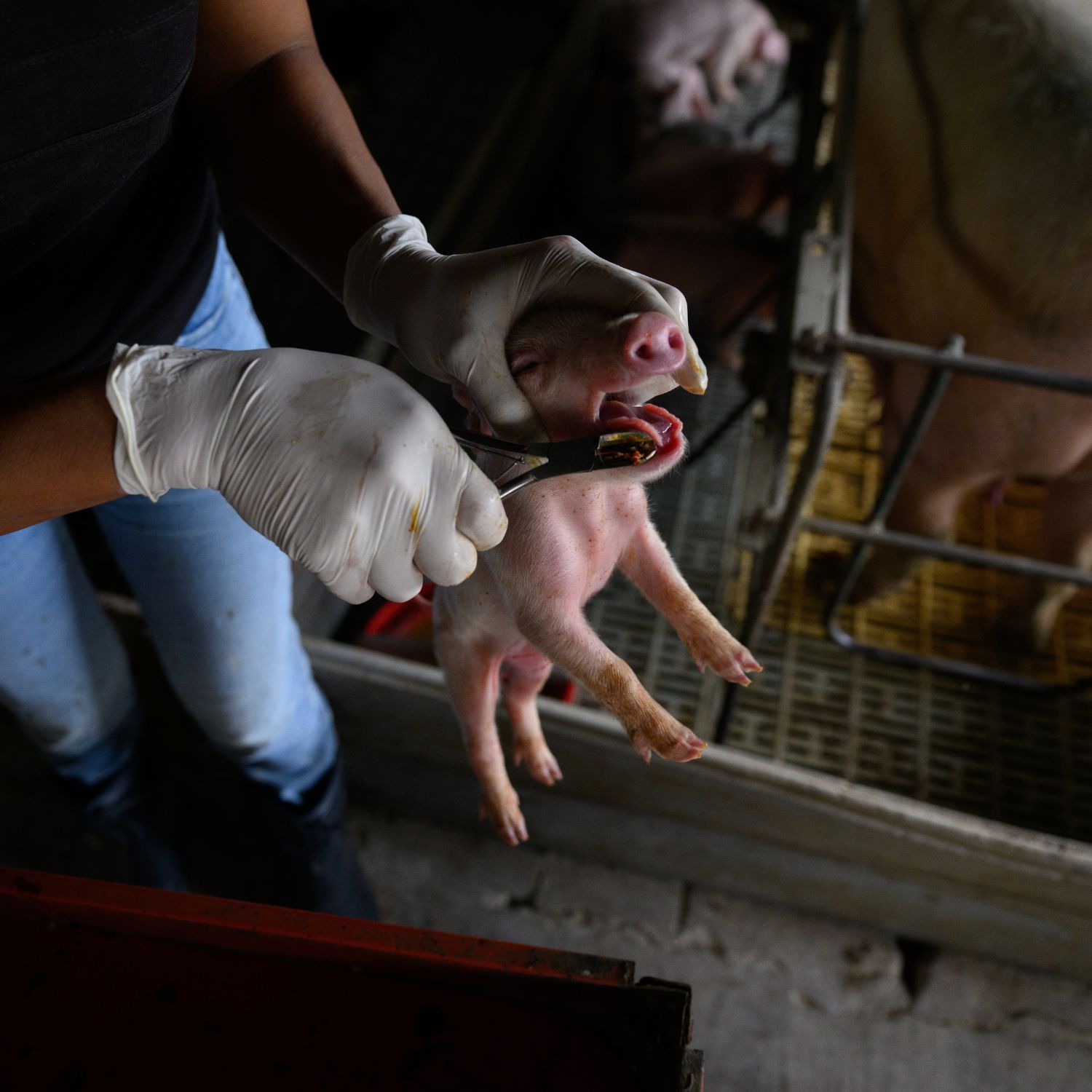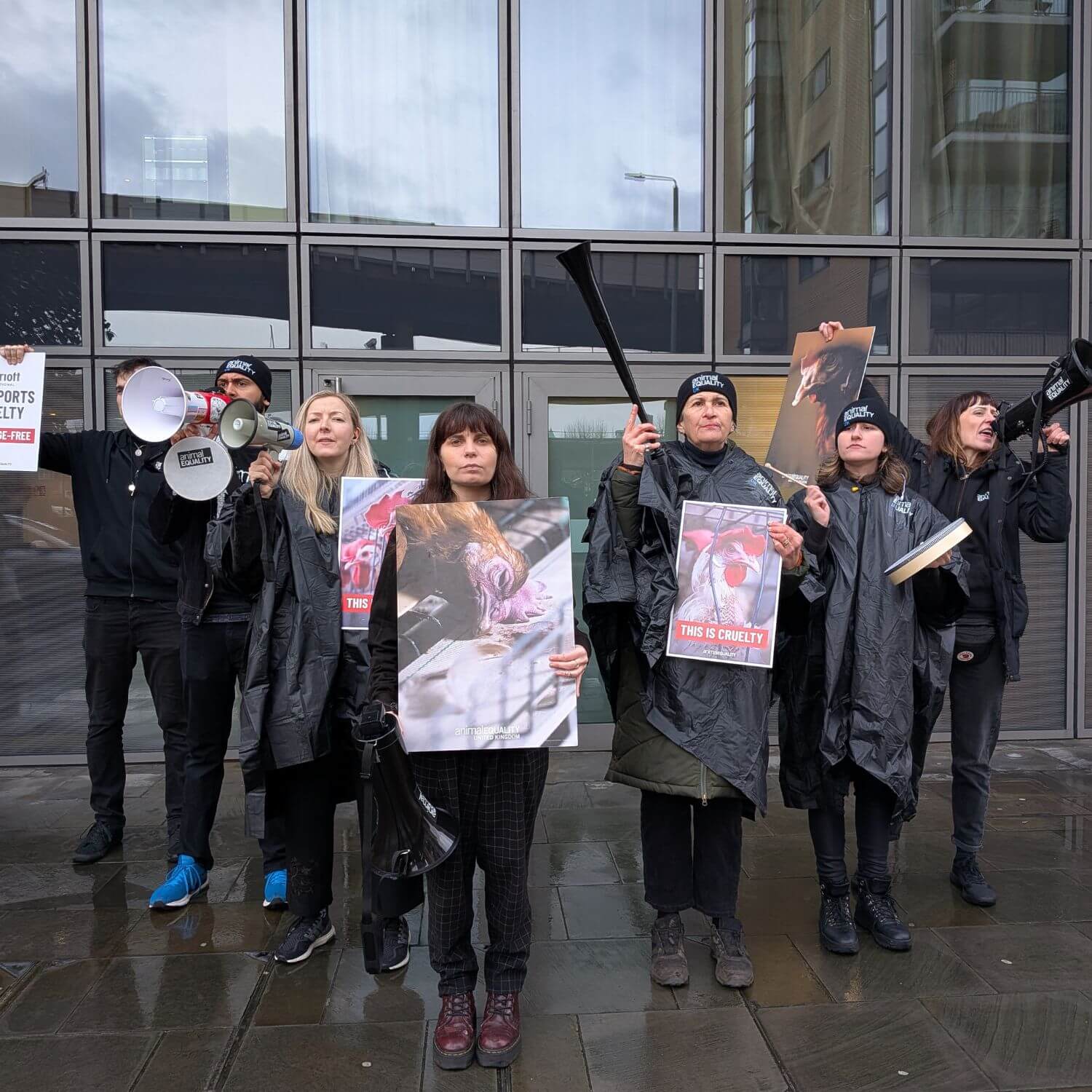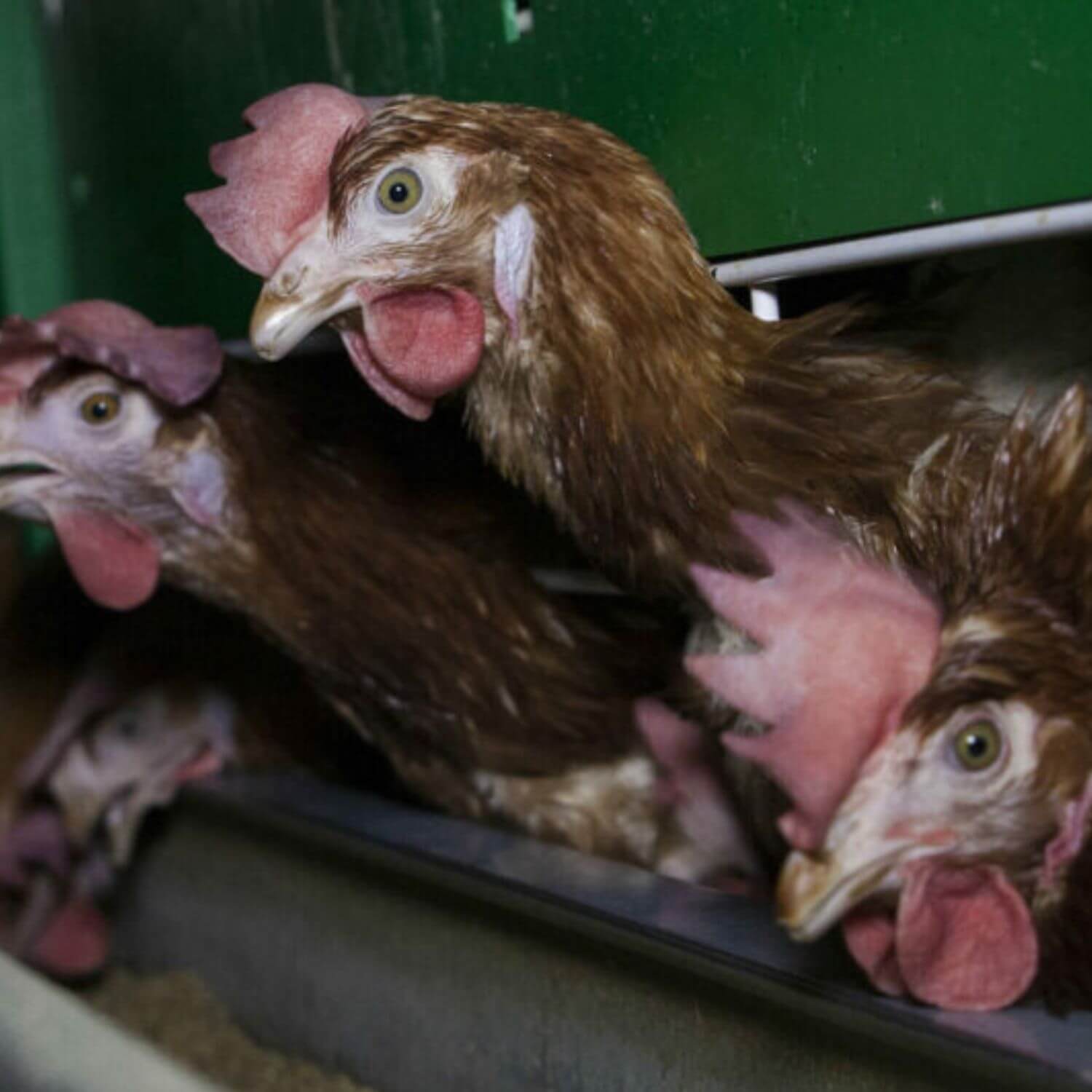This is force-feeding: unpublished images from farms in France
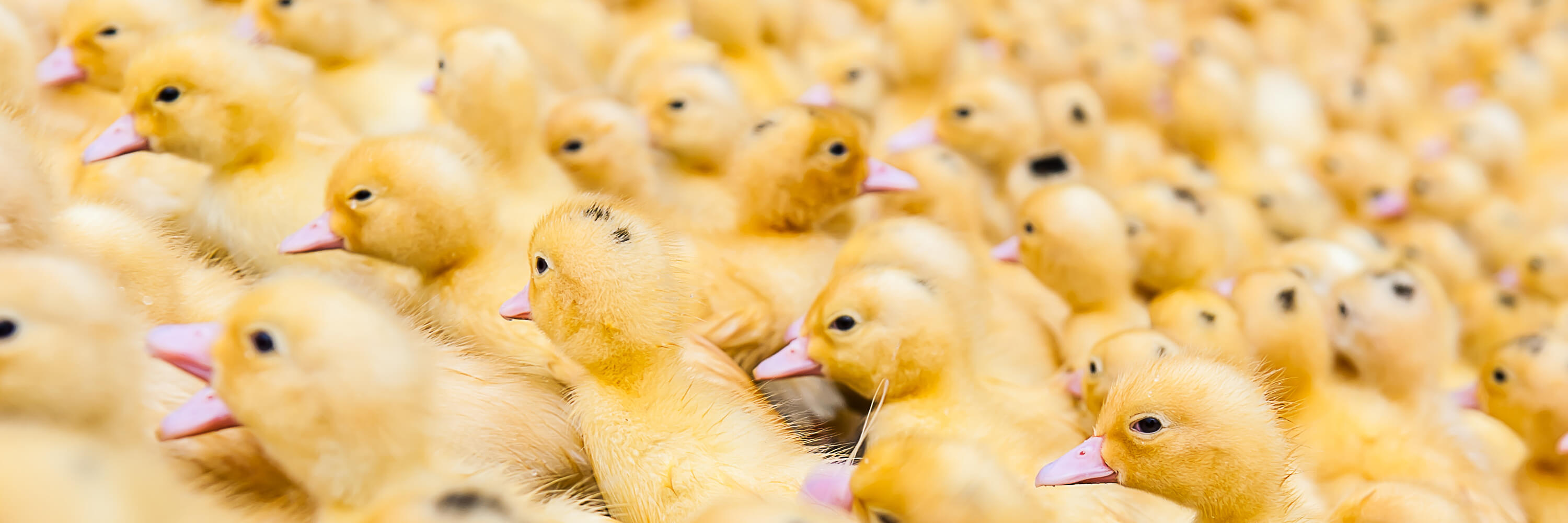
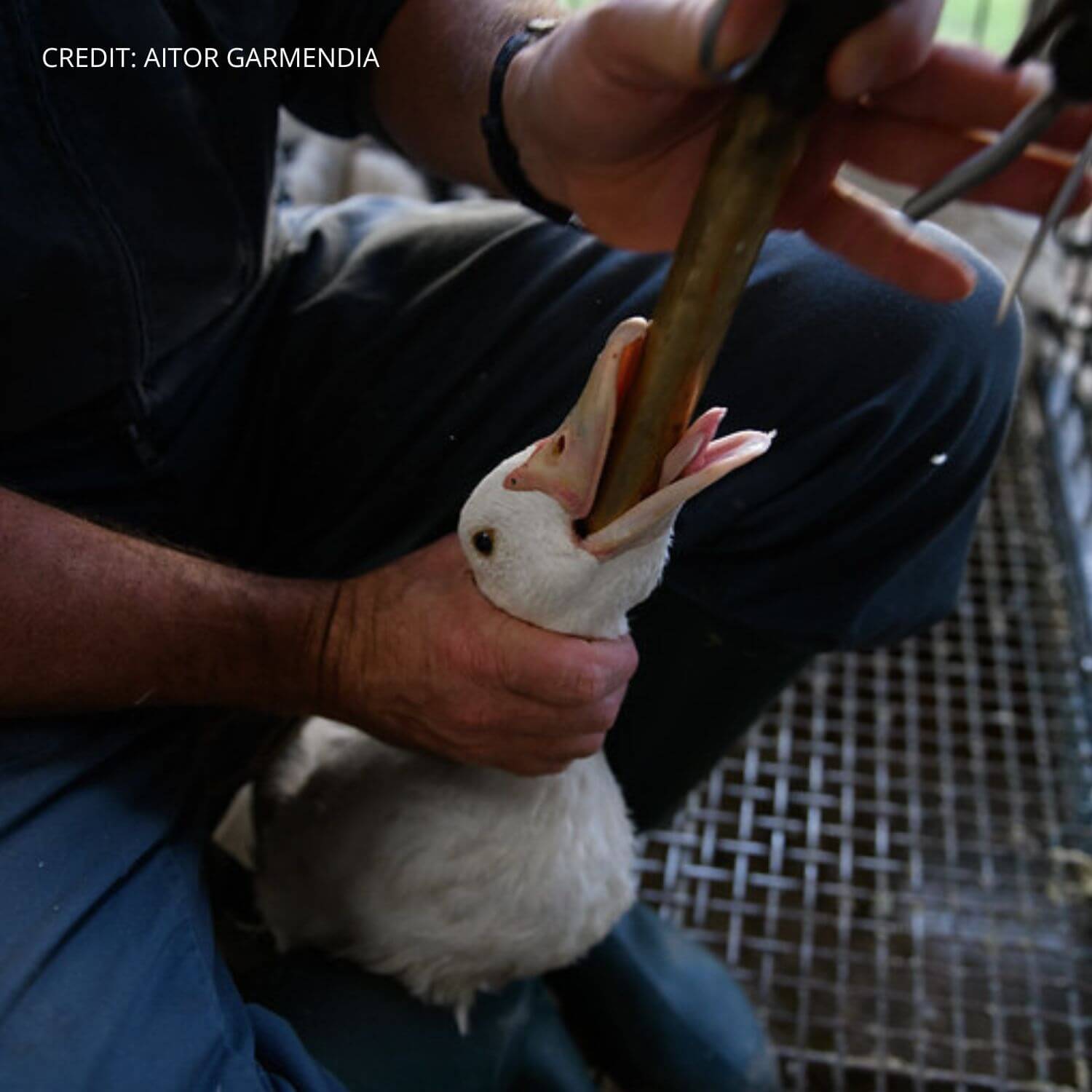
Check out the unpublished images on force-feeding
France is the largest producer of foie gras in the world. Until the practice of force-feeding is banned around the world, millions of ducks and geese will continue to suffer terribly every year.
What is force-feeding?
Force-feeding is a cruel practice carried out on ducks and geese by the foie gras industry, with the aim of ‘fattening up’ their livers. In the final two weeks of their lives, the farmed animals are fed through a long metal tube, which is rammed down their throats, forcing them to consume 200-400g of feed.
Also known as ‘gavage’, this force-feeding process causes the birds to gain weight rapidly, going from 4kg to 6-7kg in just a few days. The unnatural consumption causes the birds’ livers to become diseased, swelling to the size of a small football.
Foie gras – sold as a supposed ‘delicacy’ – is produced from tortured and diseased animals.
Force-feeding in the UK
For over a decade, the production of foie gras by force-feeding has been banned in the UK, as well as many other countries around the world. It is also condemned by experts, including the European Union’s Scientific Veterinary Committee which described force-feeding ‘detrimental to animal welfare’.
The practice of force-feeding for foie gras production is, however, still allowed in some countries and is in fact considered ‘common practice’, for example in France, Hungary and Spain. The UK continues to import foie gras made by force-feeding from countries like these, meaning our nation is still profiting from this severe animal suffering.
This cruelty must end
Force-feeding causes extreme suffering to the animals farmed and abused by the foie gras industry. The animals are confined in filthy, crowded cages, and then subjected to force-feeding multiple times a day for several weeks, causing them serious psychological and physical pain.
According to a YouGov poll, commissioned in June 2023 by Animal Equality, nearly nine in ten Brits are in favour of a ban on the importation of foie gras made by force-feeding (86%, excluding the ‘don’t know’ responses). This same strength of feeling is also seen across the rest of Europe; a Eurobarometer survey conducted by the European Union found that 86% of Europeans want to see better protections for farmed animals.
Animal Equality is leading the charge, having campaigned on this issue since 2017. We have seen extensive political and public backing, and are calling on the UK Government to hear our important message: the UK must ban the importation of foie gras made by force-feeding. The longer the Government waits, the more these animals will needlessly suffer.
Foie gras is no ‘delicacy’, nor is it festive – it is nothing but torture in a tin.
No animal should suffer and die for humans to consume them. Choose not to contribute to a system that exploits, tortures and kills animals. Choose plant-based faux gras today instead!
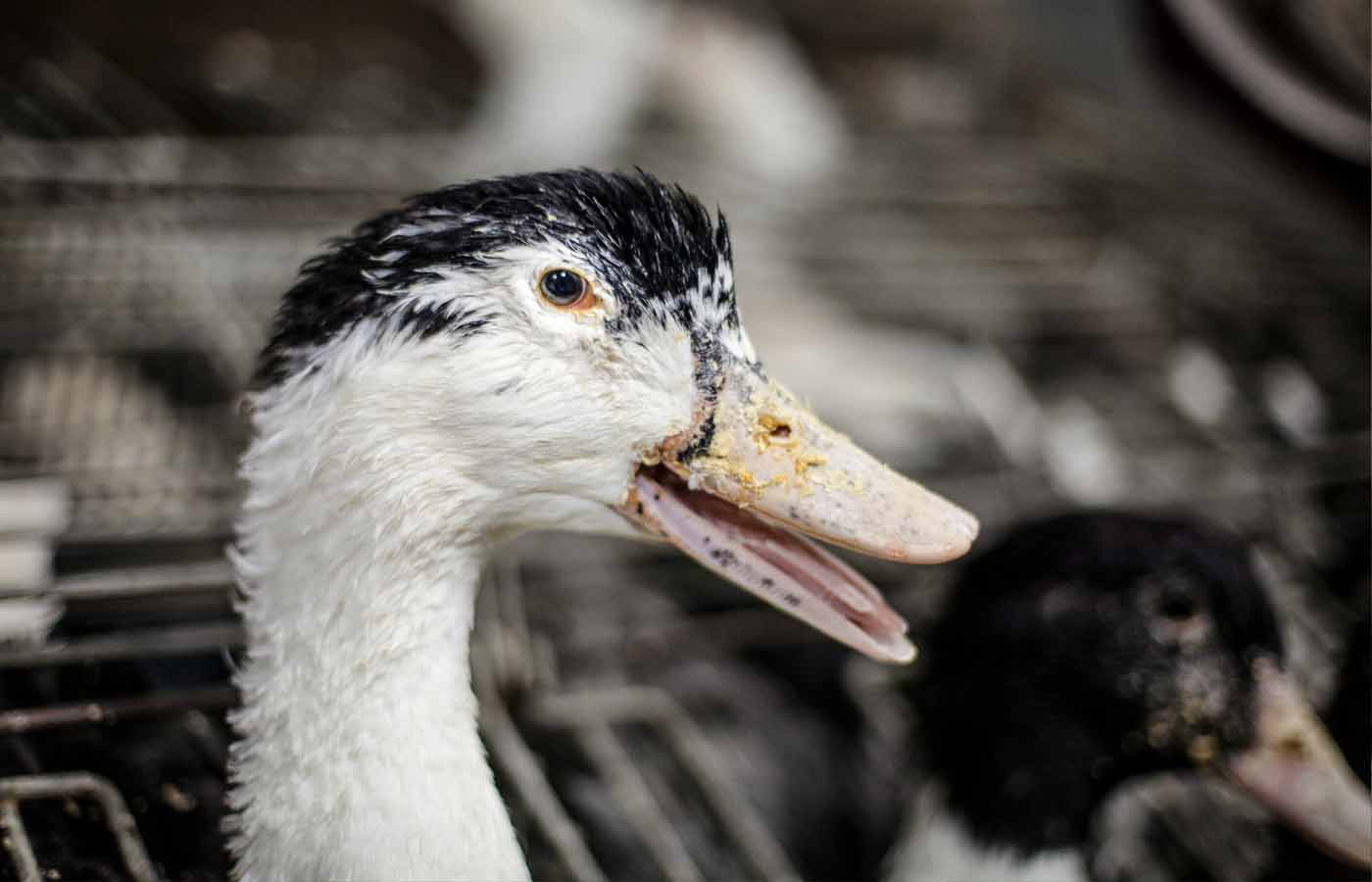
END THE CRUELTY
Foie gras is immensely cruel. Its production causes ducks and geese severe physical and psychological pain. You can protect ducks and geese by opting for plant-based alternatives.

